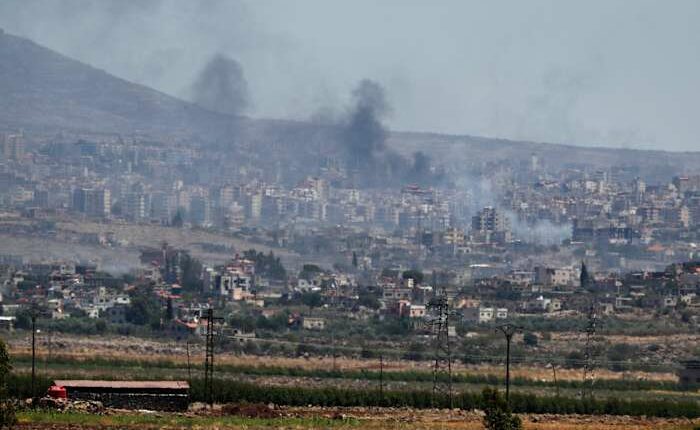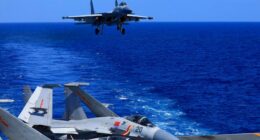Share this @internewscast.com

DAMASCUS – Intense fighting erupted once more in the southern Syrian city of Sweida on Wednesday following the breakdown of a ceasefire between government troops and armed Druze factions. This was further complicated by Israel’s threat to possibly increase its involvement in supporting the Druze, a religious minority.
The Syrian Defense Ministry accused militias in Sweida of breaching the ceasefire that had been established on Tuesday. As a result, Syrian army forces were compelled to retaliate and continue their military actions in this predominantly Druze region.
“Military units persist in responding to the sources of gunfire within Sweida city, all while adhering to engagement protocols aimed at safeguarding residents, minimizing damage, and ensuring the safe return of displaced individuals to their homes,” the statement revealed.
A rebel offensive led by Islamist insurgent groups ousted Syria’s longtime despotic leader, Bashar Assad, in December, bringing an end to a nearly 14-year civil war. Since then, the country’s new rulers have struggled to consolidate control over the territory.
The primarily Sunni Muslim leaders have faced suspicion from religious and ethnic minorities. The fears of minorities increased after clashes between government forces and pro-Assad armed groups in March spiraled into sectarian revenge attacks in which hundreds of civilians from the Alawite religious minority, to which Assad belongs, were killed.
Reports of killings and looting in Druze areas
The latest escalation in Syria began with tit-for-tat kidnappings and attacks between local Sunni Bedouin tribes and Druze armed factions in the southern province, a center of the Druze community.
Government forces that intervened to restore order have also clashed with the Druze, while reports have surfaced of members of the security forces carrying out extrajudicial killings, looting and burning civilian homes.
No official casualty figures have been released since Monday, when the Syrian Interior Ministry said 30 people had been killed. The U.K.-based war monitor Syrian Observatory for Human Rights said more than 250 people had been killed as of Wednesday morning, including four children, five women and 138 soldiers and security forces.
The observatory said at least 21 people were killed in “field executions.”
Israel has launched a series of airstrikes on convoys of government forces since the clashes erupted, saying that it is acting to protect the Druze.
The Druze religious sect began as a 10th-century offshoot of Ismailism, a branch of Shiite Islam. More than half the roughly 1 million Druze worldwide live in Syria. Most of the other Druze live in Lebanon and Israel, including in the Golan Heights, which Israel captured from Syria in the 1967 Mideast War and annexed in 1981.
Israel threatens to scale up its intervention
In Israel, the Druze are seen as a loyal minority and often serve in the military. In Syria, the Druze have been divided over how to deal with the country’s new leaders, with some advocating for integrating into the new system while others have remained suspicious of the authorities in Damascus and pushed for an autonomous Druze region.
On Wednesday, Israeli Defense Minister Israel Katz said in a statement that the Israeli army “will continue to attack regime forces until they withdraw from the area — and will also soon raise the bar of responses against the regime if the message is not understood.”
Prime Minister Benjamin Netanyahu said in a statement Tuesday night that Israel has “a commitment to preserve the southwestern region of Syria as a demilitarized area on Israel’s border” and has “an obligation to safeguard the Druze locals.”
Israel has taken an aggressive stance toward Syria’s new leaders since Assad’s fall, saying it doesn’t want Islamist militants near its borders. Israeli forces have seized a U.N.-patrolled buffer zone on Syrian territory along the border with the Golan Heights and launched hundreds of airstrikes on military sites in Syria.
Copyright 2025 The Associated Press. All rights reserved. This material may not be published, broadcast, rewritten or redistributed without permission.












